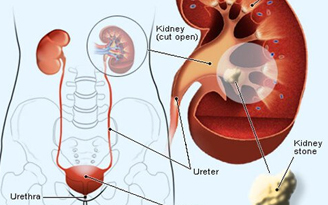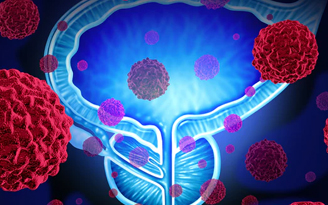Treatment options for radical prostatectomy for prostate cancer
Prostate cancer is the most common cancer diagnosis in American men. It is also the most common cancer among people over fifty in India and is growing at an incredible rate. If prostate cancer is detected in time, it can be properly cured.
There are many treatment options available to help you choose the right course of action. The best option for the surgeon is to remove the prostatectomy root. Radical prostatectomy is a common treatment that includes resection of the prostate. In particular, we recommend radical prostatectomy in healthy young people under the age of 75. Prostatectomy is usually not performed in men over 75 because of the potential for serious complications.
To choose a surgeon
Patients who want the best results are advised to see a urologist in Jaipur who specializes in prostatectomy for prostate cancer. Radical prostatectomy performed by an experienced surgeon should not exceed 2 hours without blood transfusion. According to the urologist's surgical options, the patient can only use it for a few days, not three weeks.
Radical Prostatectomy:
A radical prostatectomy is an enlarged prostate surgery in Jaipur. This basic operation is performed in a hospital and the patient is given general anesthesia. This surgical procedure is considered a second chance for long-term survival. In a root prostatectomy, surgery removes the entire prostate and then connects it to the urethra and bladder. After surgery, she usually stays in the hospital for 2-5 days.
Complications of prostatectomy:
Treatment outcome, speed of treatment, and complications for the surgeon depending on the surgical procedure. The most common complications after prostate cancer treatment are urinary incontinence and current function. Most people receiving this treatment suffer from urinary incontinence and have functions immediately after surgery that should gradually improve over time.
A possible solution is a prostatectomy for prostate cancer. Consider the higher incidence of prostate cancer.
Choose which treatment is right for you:
The selection of the most appropriate prostate cancer treatment depends on several factors. These include:
Which treatment program is most likely to cure cancer?
- Parts of the effect can be associated with different types of treatment.
- Analyze the growth and prevalence of cancer to determine an effective treatment plan
General health status, including patient age, life expectancy, and other health conditions
- Experience and training of professionals
When this cancer is diagnosed, people are always suffering in some way. People have more time to react than to make medical decisions. It offers a thorough examination of all prostate cancer treatment options; outcomes and complications and helps doctors choose the best treatment for them. And don't be afraid to ask your doctor specific questions - how will these exercises be recommended and how will their treatment be individualized?
Where can I find more?
Your doctor is a good source of information about prostate cancer and answers your questions about your health/care, but information about the disease is such an important opportunity when diagnosing prostate cancer. Prostate cancer usually progresses slowly, so it's time to find the treatment that's right for you. Write carefully, read articles and books, and talk to others who may have it.
Two patients are not taking the same medication and the instructions may differ depending on your doctor. Research is needed to understand and understand prostate cancer and all the treatment options available.




Comments
Post a Comment